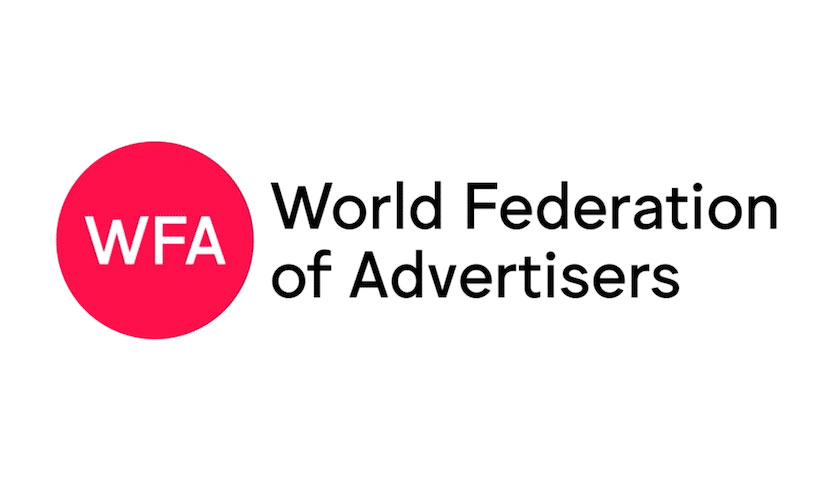The World Federation of Advertisers (WFA), has issued a global guidance on environmental claims at the Global Marketer Week in Athens which details principles and global best practice to help brands ensure that environmental claims are credible to consumers and can be backed up if they are challenged. The guidance will also be used by agencies across the world. The global agency alliance VoxComm was involved and has supported this important initiative. The guidance therefore represents a consensus across the global industry and industry regulators of what the core elements are to ensuring trustworthy and meaningful environmental claims.
Ensuring environmental claims are credible is a key commitment of WFA’s Planet Pledge. In support of this commitment, the global guidance details six key principles marketers need to follow and will be enriched by an e-learning tool to help brands and, in time, the broader industry avoid what is commonly known as greenwashing. The guidance is also complemented by dedicated resources allowing marketers to access market-specific rules, examples, and copy advice services provided by national advertising standard bodies.
The expertise of the ICAS and EASA networks consisting of independent advertising standards bodies was key to support the development of robust global guidance on environmental claims. In particular, environmental experts from the UK’s Advertising Standards Authority (ASA) were appointed to lead on the drafting of the principles which were then peer-reviewed by experts from ad standards bodies in Australia, Brazil, France, India, Spain, Sweden and the US. The process also benefited from EASA and ICAS’ strong involvement in the International Chamber of Commerce’s work on green claims such as Chapter D of its Advertising and Marketing Communications Code and its recently updated Framework for Responsible Environmental Marketing Communications which serve as the backbone of many self-regulatory systems around the world.
For a proper application of the global guidance on environmental claims and the local regulatory landscape, marketers can rely on advice and training from national ad standards bodies that are members of ICAS and EASA. The proper application of the principles can also benefit from a global independent review process, a monitoring service coordinated by EASA.
“We are proud that the International Council for Advertising Self-Regulation (ICAS) has been commissioned by WFA to develop the world’s first global guidance on environmental claims. ICAS is uniquely placed to develop such guidance, bringing together ad standards bodies, from all key global markets, with expertise both in ad regulation and in assessing environmental claims in marketing. Increased efforts to advertise environmental benefits of products and services responsibly will be key to driving the positive consumer behaviour change needed to tackle the global climate crisis. We welcome WFA’s and VoxComm’s initiative to provide guidance to their members and look forward to supporting them with dedicated training and advice through our network.”
Guy Parker, ICAS President and Chief Executive of the ASA, UK
“The European Advertising Standards Alliance is delighted to have taken part in the shaping of this global environmental claims guidance. It contributes to protecting consumers by helping the industry make responsible environmental claims. By meaningfully supporting the industry with our network’s unique and longstanding expertise – with national ad standard bodies having handled issues of green claims for decades – we also demonstrated the proactiveness of advertising self-regulation in tackling such current and growing societal concerns.”
Charo Fernando Magarzo, Chairwoman, EASA
“Ask any sustainability expert how marketing can help solve the problem of climate change and they will tell you to start by getting environmental claims right. This is where organisations such as ICAS and EASA and ad regulators such as the ASA and other ad standards bodies – have such an important role to play. They can give marketers the confidence to communicate their sustainability credentials and consumers the trust they need to make better buying decisions. This guidance, the output of unprecedented collaboration by a wide variety of industry experts, is such a vital first step in helping marketing support efforts to address climate change.”
Will Gilroy, Director of Policy and Communications, WFA
“There is a credibility gap between ads promoting products and ads promoting sustainable products. The latter starts with a disadvantage. These principles have just become an indispensable element in our industry’s toolbox to avoid greenwashing and to rebalance consumer trust. On behalf of communications agencies across the globe, I am delighted to see the industry gathering around such an important and crucial topic. By bringing our sustainability agency experts together, it became apparent immediately that environmental claims are one of the top priorities for agencies. Thank you, WFA, ICAS and EASA for kicking off this work and for making it a joint effort.”
Tamara Daltroff, President of VoxComm
“I am delighted that as part of the initiative commissioned to ICAS and EASA, I was tasked with leading on the drafting of the Global Guidance on Environmental Claims. Through this work, I looked to build on decades of experience of the ASA in effectively regulating environmental claims in advertising, and carried out a rigorous review of key legislation, self-regulatory codes and other industry guidelines that exist across the globe. Working together with a group of self-regulatory experts from key global markets ensured that the six principles we developed are highly relevant, applicable and enforceable. I am confident that if marketers are following these six principles in spirit and in letter, they can avoid the pitfalls that can lead to misleading environmental claims.
James Craig, Operations Manager – Copy Advice, ASA
